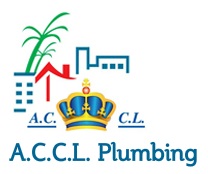Smart water meters are transforming the way we manage and monitor water usage, providing numerous benefits for consumers, utilities, and the environment. These advanced devices track water consumption in real-time, enabling accurate billing, early leak detection, and improved water management.
How Smart Water Meters Work
Smart water meters use advanced technologies like IoT sensors and wireless communication to transmit data to utilities and consumers. This data is then analyzed to provide insights into water usage patterns, detect anomalies, and predict future consumption. Some smart meters also integrate with other smart city systems, such as smart grids and irrigation systems, to optimize resource usage.
Benefits of Smart Water Meters
– Accurate Billing: Smart water meters ensure accurate and timely billing, eliminating disputes and fostering trust between customers and utilities.
– Early Leak Detection: These meters can detect leaks early, preventing substantial water loss and reducing the risk of costly damage to properties.
– Real-Time Monitoring: Consumers can track their water consumption in real-time, identifying areas for improvement and making informed decisions about their water usage.
– Water Conservation: Smart water meters promote water conservation by encouraging responsible water usage and providing insights into consumption patterns.
– Improved Water Management: Utilities can optimize water distribution networks, reducing pressure fluctuations and minimizing water loss due to leaks.³ ⁴ ⁵
Applications of Smart Water Meters
– Residential Water Management: Helps homeowners track their water usage, reduce waste, and lower water bills.
– Municipal Water Distribution: Enables cities to manage water supply efficiently, detect leaks, and predict future demand.
– Industrial Water Monitoring: Tracks water usage in manufacturing plants and commercial buildings, optimizing consumption and reducing operational costs.
– Smart Agriculture: Integrates with smart irrigation systems to regulate water use in farming, preventing over-irrigation and enhancing crop yield.
The Future of Smart Water Meters
As smart cities grow, smart water meters will become a key component of urban water management. Future developments may include AI-powered water usage predictions, automated shut-off features, and integration with weather and climate data. With the increasing adoption of smart water meters, we can expect better conservation efforts and sustainable water use for generations to come.

